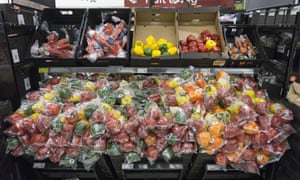So what are bio-fuels?
Bio-fuels are fuels created from organic matter (i.e. biomass and bio-waste) as an alternative to crude oil products with the most common forms being bio-diesel and ethanol. With bio fuels being widely used in developing countries it makes up 10% of global energy consumption and Brazil tops global production with 19.2 million L being produced in 2007. So fuel made from plants, sounds sustainable right? In my opinion this couldn't be further from the truth.
The first issue that should be raised is land use. In the US, annual oil usage is 134 billion gallons and in order to meet this demand 168 million acres of sugarcane would be needed. To me, this seems near impossible to achieve and the complete opposite of sustainable, especially when you factor in the rate the population is growing. With a growing population (that we are currently struggling to feed), shouldn't the land be used to grow food? The lack of agricultural land will result in an increase in food imports, increasing the food miles per person. Won't this just increase fossil fuel use from aircraft and container ships?
Say hypothetically we manage to overcome the fuel over food issue, the loss of biodiversity will be huge. Mass deforestation will have to occur to meet demand, putting already threatened species at risk. With Brazil being the leader in bio-fuel production, would this put even more pressure on the
already shrinking Amazon rain forest considering soy is used for bio-diesel? The Cerrado region has 8-9 million hectares of sugarcane plantation (used for ethanol fuel) which is a main cause for the ecosystem declining by 60%. With WWF claiming up to 10,000 species a year are going extinct, a growing bio-fuel industry would only increase this number as there would be a greater demand for this? Combine this with the growing demand for food and this figure rises even higher. Although I feel ethically we should conserve these areas, humans also benefit from biodiversity both economically and in terms of well-being. We gain food, water, fertile soil and some medicines from natural ecosystems, most of which are highest in ecosystems with the richest biodiversity. These can be sold and exported (e.g. tropical fruit, coffee) increasing income and security for individuals. Biodiversity also has cultural significance and have been linked to better mental health and social relations. Seeing as we gain so much from the natural ecosystems already present, should we not be looking at other alternatives for fuel?
The main benefit to bio-fuels is they are green and cut carbon emission right? Wrong. Yes, I am aware the plants used will act as a carbon sink so it could be argued that the bio-fuels themselves do not produce any additional greenhouse gases. However we need to take into consideration the secondary greenhouse gases produced as a by product of production. The majority of deforestation occurs as a result of 'slash and burn' methods will release a huge quantity of carbon dioxide, carbon monoxide, nitrous oxide and methane (which is more polluting that CO2). There will also be an increase in demand for fertilisers, increasing NO2 levels and ,considering NO2 has a global warming potential around 300 times greater than CO2, this will only amplify the enhanced greenhouse effect. There is also the added cost of fuel from machinery for planting and harvesting as well as the emissions from the production/conversion process which will have to be done on an industrial scale. With all of these considered, it really does question how green bio-fuels really are.

My opinion is that there are other renewable energy sources available that could be developed that are more sustainable. Although I am all for phasing out petrol and diesel, I don't feel that the way to doe this is with biofuels.
Resources -
- International Energy Association, Tracking Progress: Transport biofuels, https://www.iea.org/etp/tracking2017/transportbiofuels/
- FAO, Agricultural Outlook 2016, http://www.fao.org/3/a-BO103e.pdf
- WWF, biodiversity, http://wwf.panda.org/about_our_earth/biodiversity/biodiversity/
- BioGrace, Greenhouse gas emissions from biofuels, EU, http://biograce.net/content/biofuelrelatedpolicies/ghgemissionsfrombiofuels
- European Federation for Transport and Environment, Bio-diesels Impact, https://www.transportenvironment.org/press/biodiesel%E2%80%99s-impact-emissions-extra-12m-cars-our-roads-latest-figures-show

